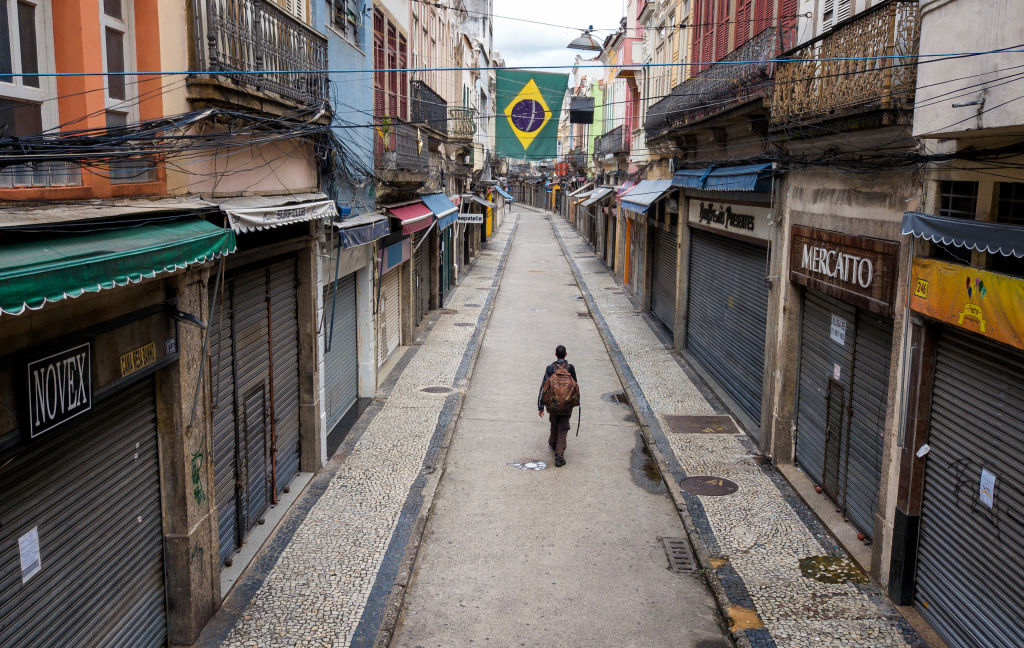The World Health Organisation’s appeal to stop naming variants of Covid-19 after geographical locations evidently cut no ice with the Prime Minister, who warned MPs yesterday about a new Brazilian mutation of the Sars-Cov2-virus. Chief scientific adviser Sir Patrick Vallance later suggested to ITV News that the changes identified in the new variant ‘might make a change to the way the immune system recognises it but we don’t know. Those experiments are underway.’
According to Pfizer last week, its vaccine still offers protection against the newly-identified Kent and South African variants of the Sars-CoV-2 virus. But should we now be worrying that the Brazilian variant will creep through our defences? The very name will be enough to cause alarm, because Brazil currently has the world’s second highest death toll from Covid-19, at 206,000 (although in terms of deaths per million population it falls behind Britain).
What’s particularly concerning is that the Brazilian strain is thought to potentially have originated in Manaus, and experts believe it could now be widespread there. The Amazon city is often singled out as the worst-affected place on the planet. Hopes that the epidemic there had burnt itself out after 20 per cent of people in the city had been infected – as I wrote here in August – have since been dashed by a revival of the epidemic. A subsequent study by the University of Sao Paulo published last month in Science magazine re-surveyed the population of Manaus and found that 44 per cent of the city’s population had antibodies to the virus in June. Adjusting for a decline in antibodies since the peak of the outbreak, the team estimates that 66 per cent of people in Manaus had had the virus by the end of June, and that 76 per cent had it by October. This would put numbers well above the 60 per cent level which UK government scientists believed in March would be required to achieve herd immunity in a population.
So has Brazil bred a more transmissible, and possibly more virulent, version of the virus? A paper published by Imperial College and Edinburgh University in association with the University of Sao Paulo found that 13 out of 31 samples taken in Manaus in December were of the new variant of the virus. It was, by contrast, absent in 26 samples collected in the city between March and November. While the new variant shows multiple changes to the spike protein, which the virus uses to attach to human cells, the team can’t yet say whether it is more transmissible or not.
The Brazilian strain was found most recently among four people in quarantine at Tokyo’s Haneda airport on 2 January, after they travelled from Brazil. The Japan Times reports that the four travellers included a man in his 40s with breathing problems, a woman in her 30s with a sore throat and a teenage boy with a fever. The other, a teenage girl, had no symptoms. The new variant was analysed by Japan’s National Institute of Infectious Diseases, who found it to have 12 mutations. Encouragingly, the institute added that there was no evidence that it was more transmissible than previous strains. Nor is there any evidence that the strain, identified among people in quarantine, has made it into the wider Japanese population.
To complicate things further, while there has been a recent surge in cases in Brazil, the Kent and South African strains have been detected there, too. In short, there is nothing concrete yet to suggest that the Brazilian strain is a sinister threat. But this does not mean that we should not be taking it very seriously.







Comments